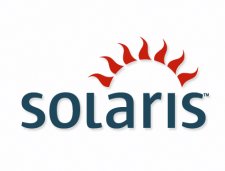HP to Support Solaris on ProLiant, Blade Systems
Hewlett-Packard is set to sell and support the Solaris operating system from Sun Microsystems on its line of ProLiant servers at the same level it currently does with Microsoft Windows.
These two rival companies, that compete in the server hardware vending business, on Wednesday unveiled expansion of a multi-year partnership agreement which would see HP distribute and provide technical support for Sun’s Solaris 10 operating system on ProLiant Line servers and Blade system platforms
Quoting Jonathan Schwartz, President and CEO of Sun :
“Both Mark Hurd [HP chairman, president and CEO] and I have heard directly from customers across the world that they are interested in Solaris, running it on HP hardware, along with getting the legendary support, not only from HP organizations [but also from] the innovation they've come to expect from the Solaris organization.”
The new agreement represents a landmark shift in the market for Sun’s MySQL database platform, its Java platform and many other innovations in server and storage systems. This is a movement that will provide a “Compelling alternative for customers that are looking for more efficiency, more performance and ultimately, lower costs.” According to Schwartz.
Under this new agreement, HP will support Solaris in the same way that it currently supports other platforms such as Microsoft Windows, SUSE Linux, Red Hat Linux and VMWare. The biggest benefit is going to be that customers will now have a centralized access point for technical support. They can purchase the tried and true HP ProLiant or blade systems and receive support for Solaris. A definite win-win situation for both entities. HP can now position its cost effective ProLiant line into more mission critical applications than it has been able to in the past, thanks to Solaris.
It is natural to expect that Sun may lose support revenue to HP along with this new agreement, however Sun Microsystems believes that this movement will see incremental revenue over time as well as increased sales of development and other software tools or services.
Get Tom's Hardware's best news and in-depth reviews, straight to your inbox.
Do you use Solaris at the work place? How does Solaris fair with other workstation-class and above operating systems?
-
Darkk I personally like the HP ProLiant servers and Solaris OS. However, I do question MySQL's future since major contributor left Sun to create his own company to support MySQL. I have to wonder how will it'll affect MySQL in terms of trust and support if the major contributor is no longer with Sun?Reply
My logic behind this with MySQL what kind of issues did the guy have with Sun before he left? Some things he didn't agree on it's future? Or he feels he is better off without Sun's support?
I wasn't too thrilled when Sun bought out MySQL as it was a great community supported product. It came a long way to rival Microsoft's SQL servers and biggest point of MySQL is no licensing issues to deal with as it was free.
Anyways, I wish HP and Sun the best of luck in this partnership.
-
deltatux Solaris basically powers my college. Aside from a Windows and 2 Linux clusters, everything else is powered by Sun Solaris...Reply
deltatux
